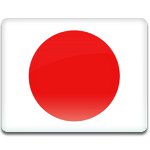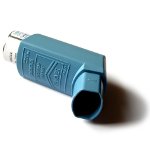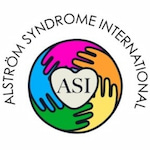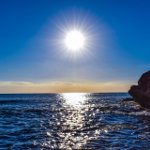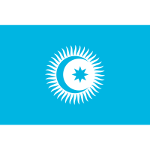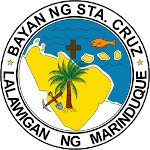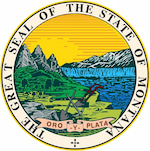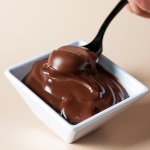Holidays Calendar for May 3, 2016
On May 3, Poland celebrates a national and public holiday known as May 3 Constitution Day or May 3 National Holiday. It commemorates the adoption of the Constitution of May 3, 1791.
Constitution Memorial Day is a public holiday in Japan celebrated on May 3. It takes place during the so-called Golden Week, the period from April 29 to May 5, which contains four public holidays.
World Asthma Day is an annual event held on the first Tuesday in May. It is organized by the Global Initiative for Asthma, a medical organization that focuses on reducing asthma prevalence, morbidity, and mortality.
World Alström Syndrome Day is an annual awareness day held on May 3. It was inaugurated in 2022 to raise awareness of an extremely rare genetic disorder and to promote research to find a cure.
Teachers play a very important role in the development of every nation, that's why their work is appreciated in many countries around the world, including the USA. National Teacher Day is celebrated in the USA annually since 1985.
Sun Day, sometimes referred to as World Sun Day or International Sun Day, is observed annually on May 3. It was established in 1978 by US President Jimmy Carter. Originally a United States observance, it is now celebrated in many countries around the world.
Wild Koala Day is observed in Australia on May 3 every year. It was inaugurated in 2016 by a network of independent koala conservation and rehabilitation groups from across the country to celebrate koalas that live in the wild and protect their natural habitat.
Fox Day is observed in the United Kingdom on May 3 every year. It was launched by the League Against Cruel Sports to celebrate the iconic red fox and prevent the killing of foxes for fun.
Turkism Day is observed on May 3 in Turkey, Azerbaijan and some other countries with a predominantly Turkic population, as well as by members of Turkic diaspora across the world. It is celebrated mainly by those who support pan-Turkism, a movement for the political and cultural unification of all Turkic peoples.
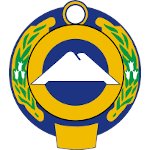 Anniversaries and Memorial Days →
Russia
Anniversaries and Memorial Days →
Russia
Day of the Revival of the Karachay People in Karachay-Cherkessia
The Day of the Revival of the Karachay People is an official observance in the Karachay-Cherkess Republic of the Russian Federation. It was established to commemorate the return of the Karachay people to their native land after the deportation to Central Asia during World War II.
Sta. Cruz Day (Araw ng Sta. Cruz), also known as Santa Cruz Day, is a special working holiday in the municipality of Santa Cruz in the Philippine province of Maridunque. It is celebrated annually on May 3.
National Montana Day is celebrated annually on May 3 to recognize Montana as the 41st state to join the Union, although it does not coincide with the actual anniversary of Montana’s admission. It was created by the National Day Calendar as part of its National State Days project.
May 3 is National Raspberry Popover Day! These sweet, flavorful treats are perfect for breakfast.
Rich, creamy and delicious, chocolate custard is a dessert beloved by many, so it is not surprising that there is a holiday dedicated to it. National Chocolate Custard Day is celebrated annually on May 3.
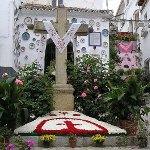 Folk Festivals →
Spain,
Colombia,
Ecuador,
Guatemala,
Mexico,
Peru,
Venezuela,
Trinidad and Tobago,
El Salvador
Folk Festivals →
Spain,
Colombia,
Ecuador,
Guatemala,
Mexico,
Peru,
Venezuela,
Trinidad and Tobago,
El Salvador
Fiesta de las Cruces
The Fiesta de las Cruces (Festival of the Crosses), also known as Invención de la Santa Cruz (Invention of the Holy Cross) or Cruz de Mayo (May Cross) is a holiday celebrated on May 3 in numerous places in Spain and Hispanic America. Although quite popular, it is not an official government or church holiday.
World Press Freedom Day (also referred to as World Press Day) is an annual United Nations observance held on May 3. It was proclaimed by the UN General Assembly in 1993 and has been held each year ever since.
National Foster Care Day is observed on the first Tuesday of May every year, during National Foster Care Month. It was created to recognize the efforts made by foster parents across the nation while raising awareness of the issues in the foster care system that need to be resolved.
Festivals for May 3, 2016
- Uchinada World Kite Festival in Uchinada, Japan
- Anifilm in Trebon, Czech Republic
- Hiroshima Flower Festival in Hiroshima, Japan
- Trondheim Jazz Festival in Trondheim, Norway
- re:publica in Berlin, Germany
- Palo de Mayo in Bluefields, Nicaragua
- Oklahoma Renaissance Festival in Muskogee, USA
- Feria de Jerez (Jerez Horse Fair) in Jerez de la Frontera, Spain
- International Horticulture Goyang in Goyang, South Korea
- Children’s International Film Festival in Dubai, UAE
- Abu Dhabi International Book Fair in Abu Dhabi, UAE
- Auto China (Beijing International Automotive Exhibition) in Beijing, China
- San Francisco International Film Festival in San Francisco, USA
- Buenos Aires International Book Fair in Buenos Aires, Argentina
- Georgia Renaissance Festival in Fairburn, USA
This Day in History
- 2023 A school shooting occurred at Vladislav Ribnikar Model Elementary School in Belgrade, Serbia. A 13-year-old student opened fire and killed nine students and a security guard.
- 2014 Died: Gary Becker, American economist and academic, Nobel Prize laureate for extension of the domain of microeconomic analysis to a wide range of human behavior and interaction, including nonmarket behavior.
- 2006 Died: Earl Woods, American colonel, baseball player, and author, the father of American professional golfer Tiger Woods. Earl coached his son exclusively over his first years in golf.
- 2002 A military MiG-21 aircraft crashed into the Bank of Rajasthan in India. 8 people were killed.
- 2001 Born: Rachel Zegler, American actress and singer known for her roles as Maria in West Side Story and Lucy Gray Baird in The Hunger Games: The Ballad of Songbirds & Snakes.
- 2000 The sport of geocaching began. The first cache was placed and the coordinates were posted on the Usenet newsgroup sci.geo.satellite-nav.
- 1987 Died: Dalida (born Yolanda Cristina Gigliotti), Egyptian-Italian singer and actress, who performed and recorded in more than 10 languages. She is ranked among the most popular singers in the world.
- 1986 Born: Pom Klementieff, French actress known for playing Mantis in the Marvel Cinematic Universe and Paris in Mission: Impossible – Dead Reckoning Part One.
- 1986 A bomb exploded in an airliner at Colombo airport in Sri Lanka. 21 people were killed and 41 were injured.
- 1982 Born: Rebecca Hall, English actress and director. Her film credits include The Prestige, Vicky Christina Barcelona, Frost/Nixon, Christine, Godzilla vs. Kong, and more.
- 1981 Died: Nargis (born Fatima Rashid), Indian film actress. She is widely regarded as one of the greatest actresses in the history of Hindi cinema.
- 1979 Margaret Thatcher formed her first government as Prime Minister of the United Kingdom.
- 1978 The birth of spam: the first unsolicited bulk commercial e-mail was sent by a Digital Equipment Corporation marketing representative to every ARPANET address on the west coast of the United States.
- 1975 Born: Christina Hendricks, American actress and former model. She is best known for role as Joan Holloway Harris in Mad Men. Her other television credits include Tin Star and Good Girls.
- 1970 Born: Bobby Cannavale, American actor whose breakthrough came with the leading role as FDNY Paramedic Roberto "Bobby" Caffey in the NBC series Third Watch.
- 1968 Born: Amy Ryan, American actress, an Academy Award nominee and three-time Tony Award nominee. She is best known for her roles in Gone Baby Gone and Birdman.
- 1960 The Fantasticks, an off-Broadway musical comedy, opened in New York City's Greenwich Village, eventually becoming the longest-running musical of all time.
- 1959 Born: Ben Elton, English comedian, actor, author, playwright, lyricist and director, whose work includes television sitcoms, novels, and musicals.
- 1942 Born: Věra Čáslavská, Czechoslovak artistic gymnast and Czech sports official. She won a total of 22 international titles between 1959 and 1968 including seven Olympic gold medals.
- 1933 Born: Steven Weinberg, American physicist and academic, Nobel Prize laureate for his proposal of a theory of electroweak unification based on spontaneous symmetry breaking.
- 1932 Died: Charles Fort, American author and researcher into anomalous phenomena. The terms Fortean and Forteana are used to characterize various such phenomena.
- 1913 The birth of the Indian film industry: the first full-length Indian feature film, Raja Harishchandra, was released.
- 1903 Born: Bing Crosby, American singer and actor, best remembered for his warm bass-baritone voice that made him one of the best-selling artists of the 20th century.
- 1902 Born: Alfred Kastler, French physicist, Nobel Prize laureate for the discovery and development of optical methods for studying Hertzian resonances in atoms.
- 1901 The Great Fire of 1901 began in Jacksonville, Florida. It was one of the worst disasters in Florida history. In just 8 hours the fire burned 146 city blocks, destroyed more than 2,368 buildings, and left almost 10,000 residents homeless.
- 1892 Born: George Paget Thomson, English physicist, Nobel Prize laureate for the discovery of the wave properties of the electron by electron diffraction.
- 1839 Died: Ferdinando Paer, Italian composer of operas and oratorios. He wrote a total of 55 operas during his lifetime, including Leonora, I fuorusciti di Firenze (The Exiles of Florence), La marquise de Brinvilliers.
- 1830 The Canterbury and Whitstable Railway was opened. It became the first steam hauled passenger railway to issue season tickets and include a tunnel.
- 1764 Died: Francesco Algarotti, Italian poet, critic, and philosopher, a man of broad knowledge and an expert in Newtonianism. He was a friend of leading authors of his time, including Voltaire.
- 1729 Born: Florian Leopold Gassmann, Czech opera composer of the transitional period between the baroque and classical eras. He is considered one of the principal composers of dramma giocoso immediately before Mozart.
- 1704 Died: Heinrich Ignaz Franz Biber, Czech-Austrian violinist and composer, one of the most influential violin composers in the history of the instrument.
- 1598 Died: Anna Guarini, Italian singer of the late Renaissance, one of the most renowned singers of her era.
- 1481 Died: Mehmed the Conqueror, Ottoman sultan. He conquered Constantinople (modern Istanbul), bringing the Byzantine Empire to an end. Mehmed is considered a hero in Turkey and parts of the wider Muslim world.
- 1481 The island of Rhodes was struck by an earthquake that triggered a small tsunami, which caused local flooding and resulted in an estimated 30,000 casualties.
- 1469 Born: Niccolò Machiavelli, Italian historian and philosopher during the Renaissance period. Machiavelli was responsible for diplomatic and military affairs of the Florentine Republic for many years.

